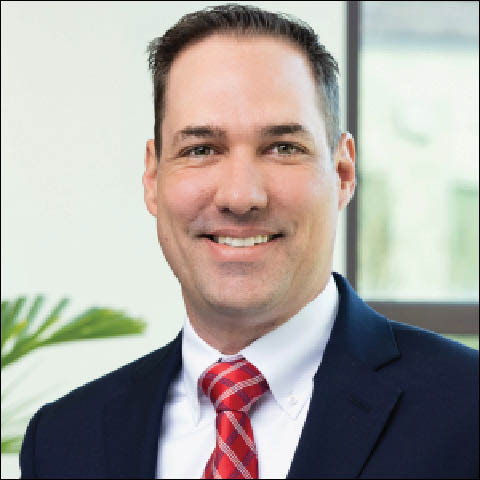Advertorial
The Cost of Fast-Tracking the Wrong Application

Advertorial
The Cost of Fast-Tracking the Wrong Application


June 2025
Today, the life insurance system works exactly as designed, and therein lies the problem. The current practice of waiting until underwriting to order an applicant’s information opens the door for fraudsters to take advantage of process gaps.
Consider the (fictitious) case of Erica.
A typo in Erica's driver's license number that she didn’t see put her life insurance application into a manual review flow.
"It should be quick," Mark, her agent, had told her. "Maybe even instant." He didn’t see the typo, either.
Erica had spent time gathering information and completed countless fields on the form, providing every piece of information requested. Yet five days later, all she got for her troubles was an occasional ping on her phone with generic updates: “We're still reviewing your application." This was not what she’d been expecting.
The system favors the wrong people. Erica’s honest error caused a delay. If she had left the driver’s license field blank entirely, she might have been approved instantly. That’s what some people do, and 48 percent of those people actually have a driver’s license.
We all know that many honest applicants face delays yearly due to tiny, preventable errors in the application process. These innocent mistakes may trigger unnecessary underwriting bottlenecks, forcing honest consumers to wait. And wait. And possibly move on to another carrier or drop out of the application process in frustration.
Meanwhile, fraudulent applicants — who don't disclose their criminal records, misreport their driving history or provide fake information — often pass through with little scrutiny simply because they know which fields to leave blank and which to fill in, fraudulently or otherwise. Today, 56 percent of applicants with a criminal record fail to disclose it. The painful truth is the system often works better for the wrong people.
The system has flaws, and while honest consumers like Erica suffer, fraudsters continue to exploit the gaps. Nondisclosure of tobacco use, criminal history and financial instability are common tactics used to slip under the radar.
The result? Fraud costs the life insurance industry $74.7 billion annually.
Things are Not In Good Order (NIGO) when someone claims they don't smoke, but their medical records say otherwise — after they've locked in a preferred rate. We call these late-stage information pulls “The 60 percent problem,” since that's the average rate for NIGO today.
Checking for data accuracy and nondisclosure later in an application process is like locking the doors after the thief is already inside. These costly mistakes might not slip through if key data were checked upfront, at the beginning of the process when the consumer is providing the minimal required information.
For many carriers, the problem isn't theoretical — it's happening as you read this. About 70 percent of life insurers wait until underwriting to order key data, according to an internal study conducted by LexisNexis Risk Solutions in 2023. At this point, errors may have already compounded, slowing the entire process.
Late-Stage Verification
This late-stage verification approach creates two big problems.
First, it delays honest applicants like Erica because minor errors — like a mistyped driver's license number — are flagged and derailed from the instant approval process but not resolved until underwriting during a manual check. This obviously creates a terrible consumer experience by adding days or weeks to the approval times, which doesn’t fulfill a carrier’s marketing promise of a much faster process.
Second, misrepresentation is often incentivized. Applicants who omit criminal history, financial instability or past insurance denials aren't flagged early enough. If they get approved before key checks happen, they're on your book, and you’re already on the hook to insure them.
For too long, the industry has accepted this process and the resulting delays as a normal part of doing business. After all, mapping dozens of data points onto your applications is not easy. But consider this: What is the cost of not revising your application process to incorporate earlier key information checks?
Carriers that implement information checks during the application process can save time by reducing manual reviews, lower fraud-related costs by flagging nondisclosure earlier and improve the process for many honest consumers who deserve it.
Underwriting shouldn't be where the real risk is first uncovered. Einstein proved that while we may never reach the speed of light, we can always push the limits of speed. It is time to fulfill the expectations of a fast, smooth application process for more consumers while flagging more bad actors and fraudsters before they even get to underwriting.
LexisNexis Life Smart Path can help you gain earlier insights.
Life Smart Path reframes the big picture for millions of people who cherish insurance's life-changing promise for their families and future. Because when the right information is available at the right time, everything can change — including the path you take to help an honest consumer, like Erica.

June 2025 Subscribe
Smarter, Bolder and Faster: Agentic Power Unleashed
Spotlight on: Aaron Seurkamp at Protective Life Corporation
Plan Sponsors and SECURE Acts: What Do They Know?
The TIP in Tipping Point: Trust, Influence and Price
Eyes on the Industry’s Future Through Scenario Planning
Fueling Employees' Success Through Continuous Learning
The Cost of Fast-Tracking the Wrong Application